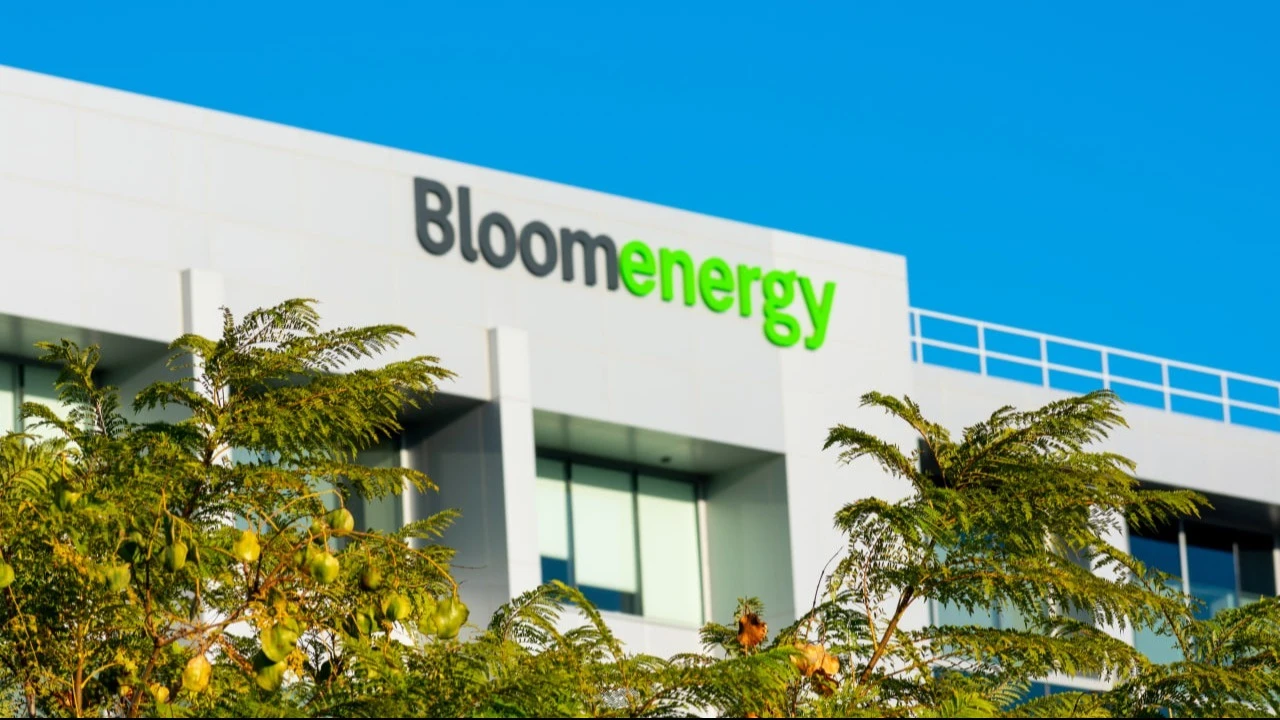Bloom Energy shares are up 580% for the year. Jefferies believes it is time to sell them
Oracle deal was driver of rally, but analyst warns of risks

Jefferies analyst downgraded shares of energy company Bloom Energy to "worse than market", pointing to overvaluation and uncertain prospects. The expert believes that investors' euphoria over its deal with Oracle to build data centers for AI is not supported fundamentally and requires too aggressive a pace of development. Bloom Energy quotes collapsed by more than 10% on this news. Despite the fact that over the past year the company's shares have grown by 580%, most analysts on Wall Street do not share the conservatism of Jefferies and still recommend investors to buy them.
Details
Shares of energy company Bloom Energy closed trading on September 24 with a 10.6% drop. The sale was triggered by the decision of analyst of investment bank Jefferies Dushyant Ailani to downgrade Bloom Energy securities from "hold" (Hold) to "worse than the market" (Underperform), which is equivalent to a recommendation to sell. In his note Ailani cited the company's overvaluation and uncertain long-term growth prospects, writes Barron's. The stock continued to decline nearly 5% in the premarket on Sept. 25.
A Jefferies analyst set a target price of Bloom Energy shares at $31, which implies a further drop of about 55% from the current level. In his opinion, investors' enthusiasm for Bloom Energy amid its deal with IT giant Oracle outpaces the company's fundamentals. Overall, Bloom shares are up 580% over the past 12 months, and this, Ailani says, points to "early signs of excessive euphoria" in the stock.
According to StockStory, the company's quotes remain extremely volatile: over the past year, the stock has made 67 moves of more than 5%. However, such a strong drop as on September 24 is a rarity even for Bloom Energy and shows that the news has seriously changed the perception of the business in the market.
Jefferies Concerns
Investors are excited about Bloom Energy's prospects, believing that its fuel cell business for local power generation could grow dramatically by building AI data centers. In July, Bloom Energy announced a partnership with Oracle, which became an additional driver of quotes growth, Seeking Alpha recalls.
The Jefferies analyst notes that Bloom Energy does remain a leader in a promising niche market, but optimism is tempered by practical limitations. To confirm the current capitalization, the company needs to attract meaningful orders from data centers. Meanwhile, the securities are already trading at around 31 projected EBITDA for fiscal 2027, which implies an extremely aggressive growth rate.
"It is difficult to justify a 30x multiple with a lack of clarity for 2027 and beyond," emphasizes Ailani. - A more realistic multiplier implies volumes that will be very difficult to achieve."
According to the analyst's estimates, the volume of initial cooperation with Oracle is 15-50 megawatts, which even at the upper limit will bring about $160 million in revenue - less than 10% of the average annual forecast according to FactSet data for 2025 ($1.76 billion). At the same time, the prospects for further orders from Oracle remain only at the level of rumors, the expert adds.
Bloom has also agreed to supply up to 1 gigawatt of power to American Electric Power in 2024, but the company will have to attract several data center projects that opt for fuel cells instead of grid-connected power to implement the plan. Bloom, for its part, is ramping up production capacity and aims to double output to 2 gigawatts per year by 2027. Thus, new orders from operators or large utilities are possible, Ailani admits. However, the problem, he believes, is the lack of long-term visibility on future contracts.
"What will support stocks in the long run? - Ailani wondered. - The rise of AI and cloud computing is certainly helping, but Bloom itself needs to show some serious results."
According to the Jefferies analyst, the next significant catalyst for the stock may appear on February 26, 2026, when the company will disclose the size of its order book. "Until then, we doubt the sustainability of the current level of quotations," the expert summarizes.
How the market is valuing Bloom Energy
Ailani's position remains more of an exception, MarketWatch notes: of the 25 analysts tracked by FactSet, 12 advise buying Bloom Energy shares, 10 are neutral and only three are pessimistic. A few days ago, Morgan Stanley raised its target price on the stock from $44 to $85 and reiterated an "above market" recommendation. RBC also in early September raised its target price on Bloom Energy from $35 to $75 and reiterated a buy recommendation on the stock with an "outperform" rating.
This article was AI-translated and verified by a human editor
